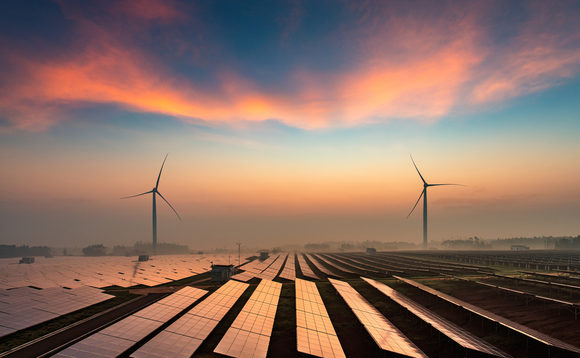That is the headline conclusion contained in a new study from the UK Business Council for Sustainable Development (UKBCSD), which argued that establishing the UK as a “sustainability superpower” would create 279,000 jobs in clean energy industries and trigger a once-in-a-generation economic opportunity on par with the discovery of oil and gas reserves in the North Sea.
It also states that Britain’s potential to generate excess amounts of clean energy could turn it from a net importer of energy into a country capable of exporting £17bn of clean power each year to mainland Europe.
“Today, more than 90 per cent of global GDP is covered by some form of net zero target,” said Jason Longhurst, chair of the UKBCSD. “We commissioned this report to find out more about the opportunities which net zero can bring to Britain.
“We believe this paper delivers an evidence base to enable our government to drive new incentives to transition, leverage in further private sector investment, and position the UK as one of the world’s most investable markets for companies tackling the challenges created by climate change.”
The report explored the economic implications of two competing scenarios facing the UK whereby it either ramps up net zero policies or persists with currently underpowered decarbonisation policies.
It argues that under the so-called ‘beyond net zero’ scenario, the UK would become a world leader in the clean energy transition, attract billions of pounds of global private investment, and establish itself as a clean energy superpower.
Such an approach would result in economic benefits of £70.3bn a year by 2050 – not including the social value of reduced greenhouse gas emissions and averted climate change – as well as an additional £36.4bn of Gross Valued Added (GVA) delivered by clean energy generation. Moreover, the report calculates that disposable incomes would enjoy a £14.7bn boost by 2050 as a result of lower energy prices.
The study argued the economic benefits of this scenario would be more than double the £35bn of benefits that would be unlocked by the alternative ‘near net zero’ scenario, whereby the UK lapses into “clean energy mediocrity and stumbles along” wit decarbonisation policies that are not sufficient to meet current climate goals.
The report acknowledges that delivering on the ‘beyond net zero’ scenario would require significant investment in a power grid that is “fit for purpose”, a “massive” increase in energy storage capacity, the delivery of a national building retrofit programme, and early intervention to catalyse the market for hydrogen.
As such, it reiterates recent calls for a raft of new decarbonisation policies, including interest-free ‘retrofit loans’, a five-fold increase in rooftop solar installations by 2035. and ‘priority grid connection auctions’, among other measures.
The report also echoes a raft of recent warnings from business leaders that the UK risks squandering its leadership position in the global clean energy transition without a renewed effort to boost investment in low carbon infrastructure.
“The UK’s strong competitive advantages in clean energy generation mean it is uniquely well positioned in the race to net zero which can deliver significant and sustained economic growth, raised productivity and increased exports,” the report stated.
“Other advanced economies will undertake similar journeys to the UK at the same time. For the UK to cement its leadership in tackling this challenge, crucial public policy decisions need to be taken, backed up by investment from private sector organisations to ensure that the UK makes and captures the necessary investment to capitalise on its strengths.”
The report was written by former government economist Chris Walker for the UKBCSD in tandem with Prologis UK and Inspired Plc.
“This landmark report makes plain the scale of the opportunity that the UK has – alongside the relatively small window that we have to act,” said Paul Weston, regional head of Prologis UK. “It is vital that we seize the opportunity, not only for the economic gains – and potential new jobs – but because being a global leader in clean energy will also bring huge societal and environmental benefits.”
The release of the UKBCSD study comes on the same day as a new report from National Grid, which details how sweeping upgrades to the UK’s electricity grid is required in order to deliver a zero-carbon electricity system by 2035 in line with the government’s goals.
The report, titled Delivering for 2035: Upgrading the grid for a secure, clean and affordable energy future, warns wide-ranging reforms are needed if the target date is to be met. It calls for planning system reform, a review of regulatory and governance frameworks, the transformation of how clean energy projects are connected to the grid, the accelerated development of supply chain capacity and the skills pipeline, and a renewed efforts to engage communities and consumers with the clean energy transition.
However, National Grid stressed such an ambitious investment plan would deliver huge benefits by boosting energy security and unlocking economic opportunities to the tune of around £18.4bn per year between 2024 and 2035.
Responding to the National Grid’s report, Barnaby Wharton, director of future electricity systems at trade body RenewableUK, said that swift action is needed to connect new renewable energy projects to the grid at the pace required to decarbonise the UK’s electricity system by 2035.
“Implementing these reforms will deliver cheap electricity to British consumers and enable us to maximise the number of new jobs we can create in this dynamic sector throughout the UK,” he said.
The reports are the latest in a string of studies and interventions to warn the government needs to urgently ease barriers to clean energy development and boost investment in low carbon infrastructure or risk seeing green investment migrate to the US and EU, where sweeping new clean tech subsidy programmes are being enacted.
Are you interested in reading articles about Net Zero? Check out the Governments plans for a new Net Zero Department.

